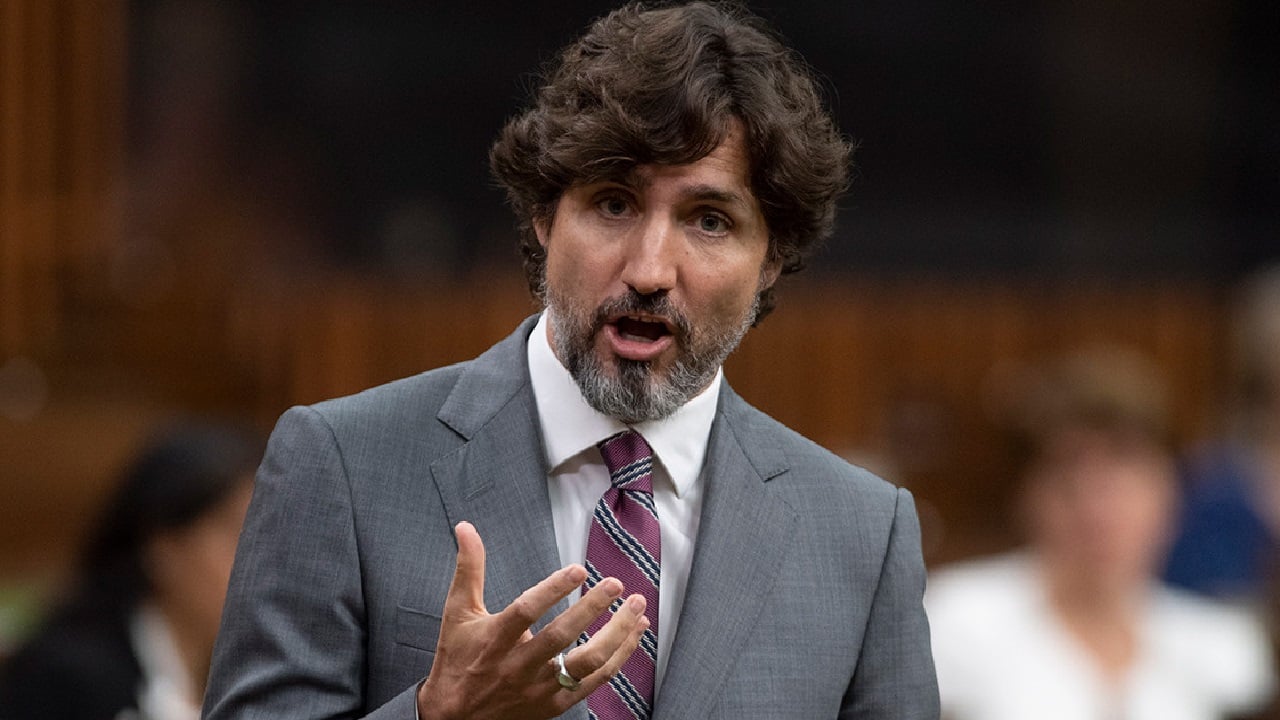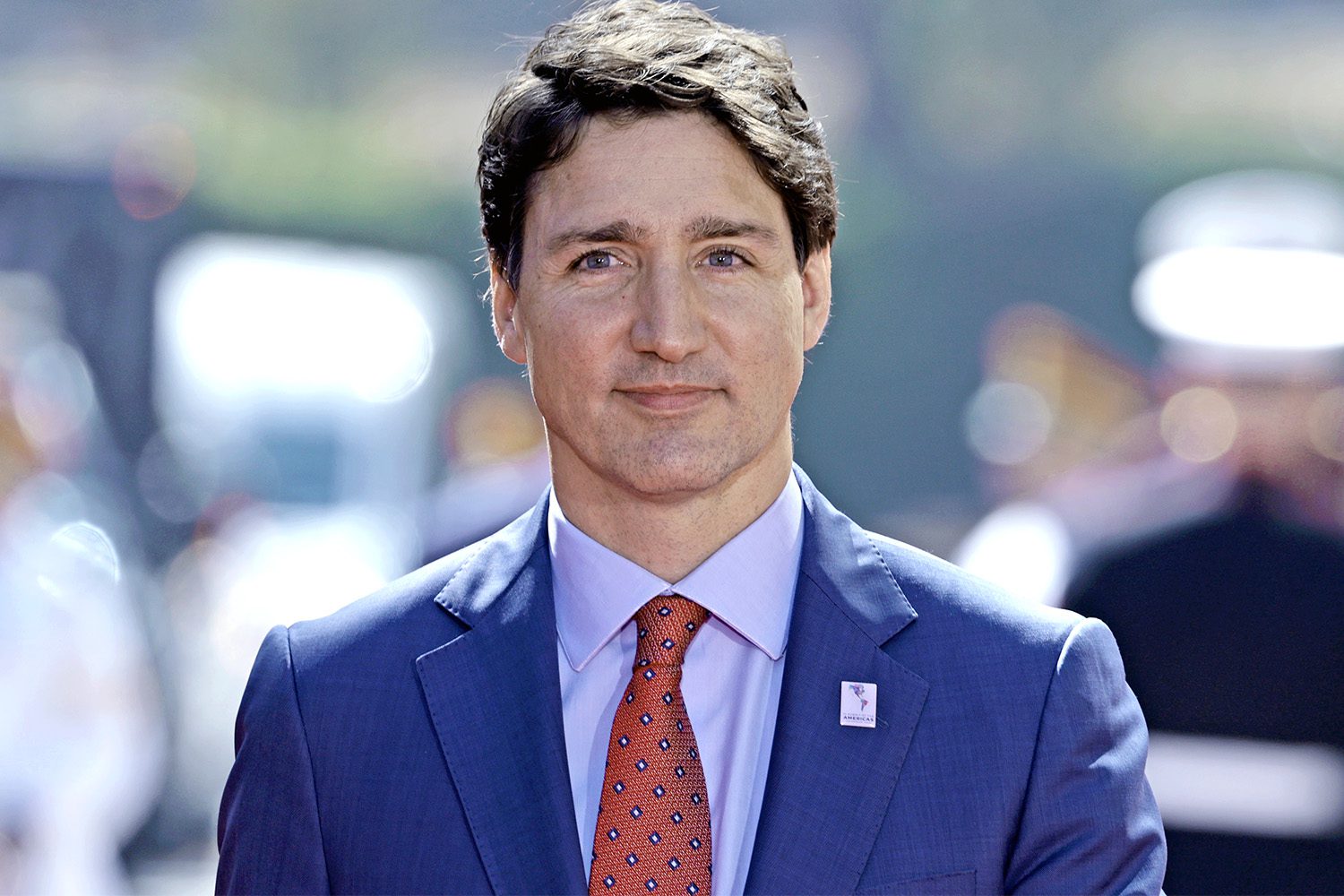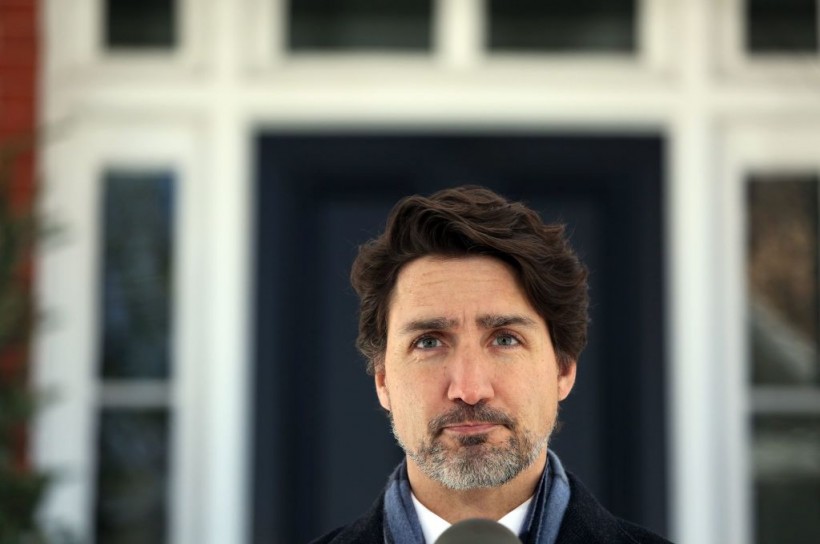Is Justin Trudeau's Net Worth What You Think? (Revealed!)
Does money define a leader? The answer, in the case of Canadian Prime Minister Justin Trudeau, is a resounding maybe; Understanding his financial standing is crucial for voters and observers alike.
Justin Trudeau, a name synonymous with Canadian politics for decades, elicits both admiration and scrutiny. While his policies and leadership style are often debated, another aspect of his life consistently piques public interest: his net worth. Estimations hover around $10 million, a figure that encompasses his assets, subtracting any liabilities, painting a portrait of a financially secure leader.
The valuation, sourced from a combination of financial disclosures, property records, and market analysis, factors in Trudeau's Ottawa residence, various investments, and other holdings. Counterbalancing these are his financial obligations, including mortgages and any outstanding debts. This sum, however, is more than just a number. It fuels ongoing discussions about wealth, privilege, and the potential influence of personal finances on political decision-making.
- Exploring Nayib Bukeles Religion Beliefs Faith And Future
- Vegamovies Watch Free 4k Movies Online Is Vegamovies Safe
The nuances of Trudeau's wealth become clearer when examining its components. Real estate, primarily his Ottawa home, constitutes a significant portion, benefitting from the city's robust property market. Investments, spanning stocks, bonds, and potentially other asset classes, contribute income and capital appreciation. A Prime Minister's salary, while substantial, contributes less dramatically to the overall picture than his investment portfolio.
The very notion of a politician's net worth invites commentary. Detractors argue that a leader insulated by substantial wealth may struggle to grasp the everyday struggles of ordinary citizens. Conversely, proponents assert that financial success, achieved through legitimate means, does not inherently disqualify an individual from public service and can even indicate sound financial acumen.
Ultimately, Justin Trudeau's net worth is one facet of a multifaceted public persona. While it provides a snapshot of his financial achievements, it does not fully encapsulate his political philosophy, leadership capabilities, or commitment to public service. The debate surrounding his wealth serves as a constant reminder of the complex interplay between money, power, and public perception in the political arena.
A clear and concise compilation of known details is essential to navigate the conversation around his financial standing. Below is a snapshot of the life and career of the current Prime Minister of Canada.
| Full Name: | Justin Pierre James Trudeau |
| Date of Birth: | December 25, 1971 |
| Place of Birth: | Ottawa, Ontario, Canada |
| Occupation: | Prime Minister of Canada |
| Political Party: | Liberal Party of Canada |
| Spouse: | Sophie Grgoire Trudeau |
| Children: | Hadrian, Ella-Grace, and Xavier |
| Official Website: | Liberal Party of Canada - Justin Trudeau |
The composition of Justin Trudeau's financial portfolio is anchored by his assets, primarily real estate holdings and a diversified range of investments. These assets, possessing inherent value and the potential to be converted into cash, form the bedrock of his estimated $10 million net worth. Trudeau's primary residence in Ottawa stands as a tangible asset, its value influenced by location, size, and market conditions.
Beyond real estate, Trudeau's investments span various asset classes, each carrying its own risk and reward profile. Stocks, representing ownership in publicly traded companies, offer the potential for capital appreciation and dividend income. Bonds, essentially loans to governments or corporations, provide a more stable income stream but typically offer lower returns. The strategic allocation of these investments is a crucial element in wealth preservation and growth.
The interplay between assets and net worth is a fundamental principle of personal finance. Net worth is calculated by subtracting liabilities (debts) from assets (possessions). As the value of Trudeau's assets appreciates whether through rising property values or successful investments his net worth correspondingly increases. Conversely, a decline in asset values would negatively impact his overall financial standing.
Understanding the significance of assets is vital for anyone seeking to improve their own financial well-being. Recognizing the potential of different asset classes, making informed investment decisions, and managing debt effectively are all essential components of building wealth over time. While the scale of Trudeau's assets may be beyond the reach of many, the underlying principles of asset accumulation and management remain universally applicable.
The financial picture of Justin Trudeau extends beyond his assets to encompass his liabilities, primarily a mortgage on his Ottawa residence and any other outstanding debts. These liabilities represent financial obligations that must be met, directly impacting his net worth and overall financial flexibility. A mortgage, while enabling homeownership, constitutes a significant debt that requires regular payments of principal and interest.
The impact of liabilities on net worth is straightforward: they reduce it. For every dollar owed, an individual's net worth decreases by a dollar. High liabilities can also strain cash flow, making it more challenging to save, invest, and meet other financial goals. In Trudeau's case, the interest payments on his mortgage and other debts represent ongoing expenses that diminish his disposable income.
Beyond the direct impact on net worth and cash flow, liabilities can also affect creditworthiness. Lenders assess an individual's debt-to-asset ratio when evaluating loan applications. A high level of liabilities relative to assets can signal a higher risk of default, potentially leading to higher interest rates or even loan denial.
Managing liabilities effectively is a cornerstone of sound financial management. Strategies such as paying down high-interest debt, consolidating loans, and avoiding unnecessary borrowing can significantly improve an individual's financial health. Understanding the implications of liabilities is crucial for making informed decisions about borrowing and managing debt.
The steady stream of income that Justin Trudeau receives, primarily from his role as Prime Minister and returns on his investments, forms a crucial component of his overall financial standing. Income provides the fuel for wealth accumulation, enabling him to acquire assets, manage liabilities, and secure his financial future. His salary as Prime Minister, a matter of public record, represents a significant portion of his annual income.
Beyond his salary, Trudeau's investment portfolio generates additional income in the form of dividends, interest, and rental payments (if applicable). Dividends are distributions of a company's profits to its shareholders, while interest is the payment received for lending money (e.g., through bonds). Rental income is generated from any real estate holdings that are leased to tenants.
The relationship between income and net worth is undeniable. Higher income generally translates to greater opportunities for saving, investing, and debt reduction, all of which contribute to a higher net worth. Conversely, lower income can limit these opportunities and make it more challenging to build wealth over time.
Understanding the sources and dynamics of income is essential for personal financial planning. Strategies such as increasing earning potential, diversifying income streams, and managing expenses effectively can significantly impact an individual's ability to build wealth and achieve financial security.
A well-structured and diversified investment portfolio is a cornerstone of Justin Trudeau's financial strategy, contributing significantly to his overall net worth and long-term financial stability. By allocating capital across various asset classes, he aims to mitigate risk and generate returns that outpace inflation and contribute to wealth accumulation. Stocks, bonds, and real estate typically form the core of such a portfolio.
Stocks, representing ownership in publicly traded companies, offer the potential for high growth but also carry a higher level of risk. Bonds, representing loans to governments or corporations, provide a more stable income stream but typically offer lower returns. Real estate, encompassing residential or commercial properties, can provide both rental income and capital appreciation.
The art of investment lies in striking the right balance between risk and reward, based on individual circumstances, time horizon, and risk tolerance. A younger investor with a longer time horizon may be more comfortable with a higher allocation to stocks, while an older investor nearing retirement may prefer a more conservative portfolio with a greater emphasis on bonds.
Beyond asset allocation, investment management involves ongoing monitoring, rebalancing, and adjustments to adapt to changing market conditions and personal circumstances. A prudent investment strategy requires a long-term perspective, discipline, and a willingness to seek professional advice when needed.
The estimated $10 million net worth attributed to Justin Trudeau serves as a data point, offering a glimpse into his overall financial standing and providing fodder for analysis and discussion. It is a snapshot in time, reflecting the culmination of his income, assets, and liabilities at a particular moment. However, it is important to interpret this figure with caution, recognizing the inherent limitations of such estimates.
Estimating net worth involves gathering data from various sources, including financial disclosures, property records, and market analysis. However, some information may not be publicly available, requiring reliance on educated guesses and assumptions. Market fluctuations can also impact asset values, making it challenging to pinpoint an exact net worth figure.
Despite these limitations, net worth estimations can provide valuable insights. They offer a framework for understanding an individual's financial trajectory, identifying key assets and liabilities, and assessing their overall financial security. For public figures like Justin Trudeau, net worth estimations also contribute to transparency and accountability.
Ultimately, the estimated net worth is just one piece of the puzzle. It is important to consider the broader context, including an individual's values, priorities, and contributions to society, when forming a comprehensive assessment.
The financial standing of public figures inevitably attracts scrutiny, and Justin Trudeau is no exception. The controversy surrounding his net worth often centers on the perception that wealth can create a disconnect from the everyday struggles of ordinary citizens, potentially influencing policy decisions and priorities. Critics argue that wealthy leaders may be less attuned to the needs of lower-income communities and may favor policies that benefit the affluent.
However, it is also important to acknowledge that financial success does not automatically disqualify an individual from public service. Many argue that wealth, when earned through legitimate means, can be a sign of competence and sound financial management, qualities that could be beneficial in a leadership role.
The debate surrounding Trudeau's net worth highlights the complex interplay between wealth, power, and public perception. It underscores the importance of transparency and accountability in government, as well as the need for leaders to demonstrate empathy and understanding for all segments of society.
Ultimately, judging a leader solely on their net worth is a simplistic and potentially misleading approach. A more comprehensive assessment should consider their policies, actions, and demonstrated commitment to serving the public interest.
The fascination with Justin Trudeau's net worth transcends mere curiosity; it reflects a deeper public interest in understanding the financial lives of those who wield political power. This interest stems from a desire for transparency, accountability, and a sense that leaders should be relatable to the people they serve.
Knowing a leader's financial standing can provide context for their policy decisions, shedding light on potential conflicts of interest or biases. It can also contribute to a sense of trust, or a lack thereof, depending on how that wealth was accumulated and how it is managed.
Moreover, public figures often serve as role models, whether they intend to or not. Their financial habits and attitudes towards wealth can influence public perceptions and shape societal values. The scrutiny surrounding Trudeau's net worth underscores the responsibility that comes with public service and the importance of maintaining ethical financial practices.
In conclusion, the public's interest in Justin Trudeau's net worth is driven by a complex mix of factors, including transparency, accountability, relatability, and the desire for ethical leadership. It is a reminder that public figures are subject to a higher level of scrutiny and that their financial lives are inevitably intertwined with their political roles.
This section addresses the recurring inquiries and aims to dispel any misconceptions regarding Justin Trudeau's net worth, presenting facts and well-reasoned explanations.
Question 1: What exactly constitutes Justin Trudeau's net worth?
Answer: Justin Trudeau's net worth comprises all his assets, such as his residence, investments in stocks, bonds, and real estate, minus his liabilities, which include mortgage debts, loans, and other financial obligations.
Question 2: How did Justin Trudeau come to amass his current level of wealth?
Answer: The accumulation of Trudeau's wealth can be attributed to several factors, including his earnings as a politician, returns from diverse investments, and potentially inheritance from his family.
Question 3: Are there any ethical concerns related to Justin Trudeau's net worth?
Answer: While some have speculated that Trudeau's wealth might influence his political choices, no concrete evidence supports such claims. His financial disclosures are subject to scrutiny to prevent conflicts of interest.
Question 4: How does Justin Trudeau's net worth compare to other political leaders globally?
Answer: Compared to many other world leaders, Justin Trudeau's net worth can be considered moderate. Wealth among political leaders varies significantly depending on their backgrounds and countries.
Question 5: What implications does Justin Trudeau's net worth have for his role as Prime Minister?
Answer: Justin Trudeau's net worth is often seen as a reflection of his life experiences and financial management skills. It offers insights into his decision-making processes, but his policies and actions are the primary measures of his effectiveness as a leader.
Question 6: Can we expect Justin Trudeau's net worth to change substantially in the foreseeable future?
Answer: Like any individual with diverse investments, Justin Trudeau's net worth is subject to change based on market conditions and financial decisions. Future investment performance and policy outcomes will likely influence it.
Summary: Justin Trudeau's net worth garners significant attention due to his high-profile position. A comprehensive understanding of the factors influencing his net worth, including its composition and potential implications, is vital for informed public discourse.
- Exploring Nayib Bukeles Religion Beliefs Faith And Future
- Terrarias Terraspark Boots The Ultimate Crafting Tree Guide

Justin Trudeau Net Worth 2024 Age, Salary, Son and Assets

Justin Trudeau's Net Worth Highest Profiteer In Liberal Party of

Justin Trudeau Net Worth 2022 Overall Wealth, Salary of Canada's Prime